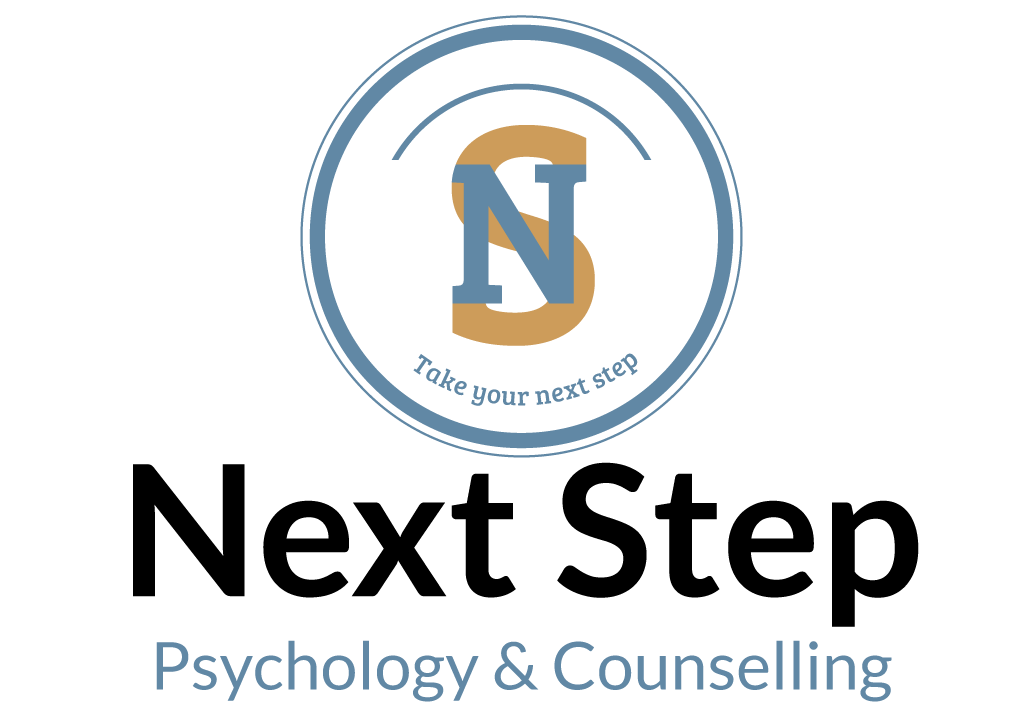Who We Help?
Welcome to Next Step Psychology & Counselling! We're here to support in overcoming life's challenges. Our compassionate psychologists provide personalized therapy to help you navigate anxiety, depression, relationships, and career stress. Let us guide you towards healing and growth in a safe, judgment-free space. You don't have to face these challenges alone. Join us on your journey to greater well-being.
What are your areas of specialty?
Abuse and Trauma/PTSD: Expert support for survivors of abuse and trauma, providing healing and coping strategies for post-traumatic stress.
Adolescents: Guidance and counseling tailored to the unique challenges and transitions faced by young adults.
Affective Disorders (including Depression): Compassionate treatment for mood disorders like depression, helping individuals regain joy and balance in their lives.
Addictions (including Alcohol and other drugs Addictions): Specialized assistance in overcoming substance abuse and addiction, fostering a path towards recovery and wellness.
Anger Management: Techniques and strategies to understand and manage anger in healthy and constructive ways.
Anxiety Disorders (including Panic Attacks): Effective therapies to alleviate anxiety and panic attacks, empowering individuals to regain control and peace of mind.
Assertiveness Training: Tools and skills to develop assertiveness and self-confidence in personal and professional interactions.
Bullying: Support for individuals affected by bullying, providing coping mechanisms and strategies to address bullying behavior.
Career and Vocational Planning: Guidance in navigating career transitions, identifying strengths, and setting achievable career goals.
Conflict Resolution: Mediation and communication techniques to resolve conflicts and strengthen interpersonal relationships.
Couples Therapy: Counseling for couples to enhance communication, resolve conflicts, and strengthen intimacy and connection.
General Counseling/Psychology: Personalized counseling services to address a wide range of mental health concerns and life challenges.
Life Coaching: Empowerment and guidance to set and achieve personal and professional goals, fostering growth and fulfillment.
Men's Issues: Support for men navigating specific challenges and issues related to masculinity, relationships, and mental health.
Mental Health: Comprehensive care and support for mental health concerns, promoting overall well-being and resilience.
Obsessive-Compulsive Disorder (OCD): Evidence-based treatment for OCD, providing relief from intrusive thoughts and compulsive behaviors.
Parent/Caregiver Training: Education and support for parents and caregivers to develop effective parenting skills and promote healthy family dynamics.
Pastoral Care: Spiritual and emotional support rooted in faith traditions, guiding individuals through life's challenges and transitions.
Relationships: Counseling and support to enhance communication, resolve conflicts, and cultivate fulfilling relationships.
Religious Issues: Exploration and guidance on matters of faith and spirituality, integrating religious beliefs into personal growth and healing.
Schema Therapy: Holistic therapy approach addressing deeply ingrained patterns and beliefs, promoting emotional healing and transformation.
Self-Esteem and Self-Development: Tools and techniques to enhance self-esteem, self-awareness, and personal growth.
Shyness & Social Skills Deficits: Strategies to overcome shyness and develop social skills, fostering confidence and meaningful connections.
Stress Management/Burnout: Techniques and coping strategies to manage stress, prevent burnout, and promote resilience.
Suicide: Support and intervention for individuals struggling with suicidal thoughts or behaviors, providing hope and assistance in times of crisis.
Support with Disability: Support and resources for individuals living with disabilities, promoting resilience and adaptation.
Work Related Issues (including Workplace Bullying): Assistance in navigating workplace challenges, addressing issues such as bullying, stress, and career dissatisfaction.
FAQs
How long is each session and how many sessions should I have?
The number and length of your sessions depend on your circumstances. Our consultations duration are up to 55 minutes.
What can I expect during my first session?
During your initial session, we will typically gather information about your presenting concerns, personal history, and treatment goals. You'll have the opportunity to discuss what brings you to therapy and any questions or concerns you may have. We will also provide you with information about confidentiality, fees, and scheduling. This session serves as an introduction and allows you to begin building rapport with us.
Do I need a referral?
No, you do not need a referral to see a psychologist. However, if you would like to see a psychologist and claim a rebate from Medicare, then you will need to see your GP and obtain a GP Mental Health Care plan. Please click here for the current rebate rate.
If you do not want to claim from Medicare, you can come in using your private health fund or pay for the sessions without a rebate.
How much and how do I process my claim from Medicare?
Medicare rebate: $93.35 per session, subject to government adjustments. Eligible for 10 sessions per calendar year. Review required after 6th and 10th appointment with GP.
We can process your Medicare rebate for convenience. Full fee payment required upfront; rebate processed to nominated bank account linked to Medicare. Ensure correct bank details with Medicare for rebate deposit.
Will my Private Health Fund cover my appointments? If yes, how much?
Every private health has a different policy and cover so we strongly encourage you to check with your health care fund before booking your sessions. You will need to claim your private health rebate individually.
How does therapy work for teenagers/children?
For children to feel comfortable in sharing their feelings and concerns, it is important they understand what kinds of information will be kept private. Often at the first session the child, parents, and psychologist will sit down together to discuss the issue of confidentiality and outline what types of information the psychologist might disclose to parents, and what he or she will keep confidential. For example, if a child discloses activity that puts themselves or someone else at serious risk of harm, the parent will be advised and an action plan established.
Let us help you take your next step towards a healthier, happier you. Get in touch to schedule your appointment and start your journey towards well-being today.
